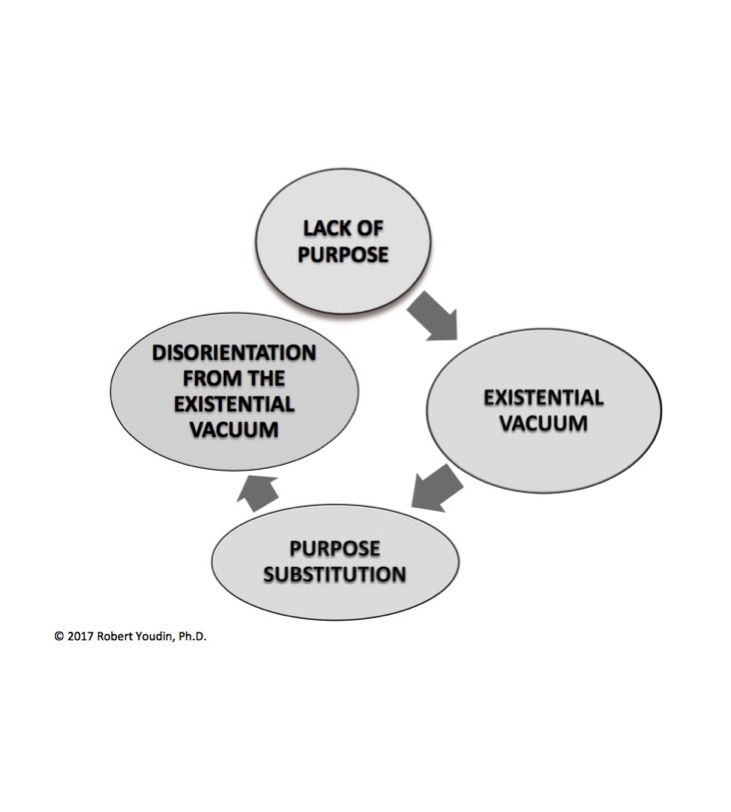Dr. Youdin views the people he works with from a strengths perspective. Rather than seeing a person as pathological or sick, he views symptoms as a sign of weakened resiliency to the psychosocial forces of one's life experiences. When these forces overwhelm a person's resiliency, he or she loses a purpose to move forward with his or her life. Without a purpose, a situation of being stuck occurs which creates an existential vacuum. Finding oneself in an existential vacuum, a person will use a purpose substitute in lieu of purpose, or positive forward movement with his or her life. An existential vacuum is considered to be a symptom of the failure of resilience to bio-psycho-social stressors affecting a person rather than psychopathology emanating from a disease process within the brain.
There are five types of purpose substitutions: addictive, social, morally good, social status seeking, and unfulfilling engagement. The addictive type will show a person substituting repetitive compulsive activities such as psychotropic substance abuse, pathological gambling, eating disorder behaviors, excessive spending, etc. The social type finds a person making superficial relationships, producing drama as an attention getting device, or joining an organization for social acceptance without necessarily being interested in the organization. The morally good type will show a person demonstrating altruistic behaviors by advocating for causes in an inauthentic manner. The social status seeking type will show a person externalizing him or herself with symbols of money such as material goods or organizational positions (jobs, community organizations, political offices, country club memberships, etc.) that lend prestige and power. The unfulfilling engagement type will show a person substituting a purpose through excessive activities such as long working hours, devotion to excessive television viewing, compulsive internet use, overly rigid schedules, or other unfulfilling non-interpersonal activities.
A person employing purpose substitutions creates an existential permanency, or lack of purpose. The goal of existential psychotherapy is to eliminate these substitutions and replace them with positive coping skills based on a person’s strengths, which will lead to an enhanced resilience to bio-psycho-social stressors and a sense of empowerment.
